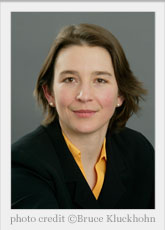By Matt Ranen, on Thu Jul 31, 2014 at 1:30 PM ET  If you are the CEO of a major American or European based multinational you have a difficult question on your plate right now. Are you going to the St. Petersburg Forum in late May this year? If it were Switzerland and this were the World Economic Forum annual meeting, the decision would pretty much make itself (unless you are just bored of Davos). But this is Vladimir Putin’s show, the Russians’ answer to what they see as the ‘Western-centrism’ of the World Economic Forum. If you are the CEO of a major American or European based multinational you have a difficult question on your plate right now. Are you going to the St. Petersburg Forum in late May this year? If it were Switzerland and this were the World Economic Forum annual meeting, the decision would pretty much make itself (unless you are just bored of Davos). But this is Vladimir Putin’s show, the Russians’ answer to what they see as the ‘Western-centrism’ of the World Economic Forum.
You’ve probably gone to St. Petersburg the last few years without much worry. Like Davos, it’s a good place to network, share perspectives, and talk informally with government officials. At St. Petersburg it’s often been about alternative perspectives, a map of the world that puts a big resource-centric ‘emerging’ economy right at its center rather than (as seen from Davos) at its periphery. That’s a useful intellectual and strategic exercise… and St. Petersburg is a great backdrop for it.
But this year is different. This week is the one year anniversary of the Edward Snowden story breaking. Then there was Crimea. And now, Eastern Ukraine. In the background looms Syria. If it were only one of these four things where Putin had stuck his fingers in Washington’s eye, people would be talking about St. Petersburg as a useful opportunity for another chance at a ‘reset’. But not this time, not with all four on the table.
In the last two weeks, top executives from companies like Alcoa, Goldman Sachs, Pepsi, and ConocoPhilips have taken phone calls from the White House asking them not to attend St. Petersburg this year. Nobody is telling them they cannot go — and it’s not illegal under current US sanctions. But is it worth saying no right now to people as close to the President as Valerie Jarrett or John Podesta or possibly John Kerry, for the sake of a few days in Russia? Is it worth a photo-op handshake between you and Mr. Putin that shows up on the front page of the New York Times?
Hard question. Russia is not a place that you just write off. It’s a large emerging market and an energy superpower. It’s a place where lots of money is being made and can be made so long as you are in the good graces of the Kremlin. Mr. Putin will surely take attendance at the meeting. Does anyone doubt the inevitability of subtle (or not so subtle) retaliation against the no-shows? Even more frustrating, how will it feel to cede the playing field to other companies who do go — including companies from some of our allies, like Germany, that are less severe in their judgements of Putin?
We’re not giving big bold advice here about whether anyone in particular should go or not go to St. Petersburg. The general point is simply to recognize that this type of decision, with these kinds of stakes and higher, is set to become a much more common dilemma for global corporations going forward than it has been for the last decade or more.
The global business environment has always been embedded within a global political environment, that used to go by the phrase ‘geopolitics’. Every decade or so, a pundit arises to proclaim that the interconnection between the two is over and that economy will henceforth dominate politics on the global stage. This pundit usually ignores history (an expensive error) and imagines that he or she is the first person to ever make this argument.
It usually doesn’t take long for the pundit to be proven painfully wrong. This time around it’s Putin’s turn to put reality up front. It’s not that the Kremlin ignores or doesn’t get the interests of global capitalism. Rather, the Kremlin competes in that game by doing everything it can to limit American freedom of action in the world and moving determinedly to increase Russian influence by wielding political and military power, not market power, because that’s what Russia has.
Russian geopolitical strategy in one phrase, is to put more sand in the gears — increase the friction — at any place and any time where life can be made more difficult for Barack Obama and US-based multinationals. This isn’t stupid, retrograde, anachronistic, or self-defeating. It’s basic strategy, blocking and tackling in a geopolitical sense.
Why? Because friction differentially benefits the less efficient, less global, and less powerful players in the game. It differentially hurts the players at the technological and economic horizons. And thus on a relative basis, it’s good for Russia.
There’s going to be more of it coming in the next few years. And not only from Russia, since the logic applies to many other emerging market governments and multinationals as well. As a result, CEOs of American based global companies are very quickly going to find themselves in a real bind.
No one wants to have to ‘choose sides’ in an argument like this, but the argument is not going to go away. This is going to require very thoughtful and subtle corporate diplomacy. The single most important question a CEO can ask right now is this: what do I need from governments, going forward, to limit the friction that my business will encounter at geopolitical flash-points? A little foresight and advanced planning may help.
By John Y. Brown III, on Thu Jul 31, 2014 at 12:00 PM ET  Friend: Hey John. I saw you walking downtown last week but didn’t say hi because you looked busy and I didn’t want to bother you. Friend: Hey John. I saw you walking downtown last week but didn’t say hi because you looked busy and I didn’t want to bother you.
Me: Oh, funny.
Always say hi.
That was just my “Downtown look.”
I try to walk fast and furrow my eyebrows and look like I am concentrating on something complicated so other people won’t realize I am just trying to remember where I parked my car.
By Josh Bowen, on Thu Jul 31, 2014 at 8:30 AM ET  We are almost half way through the year and I would like to do a short exercise with everyone. We are almost half way through the year and I would like to do a short exercise with everyone.
Ask yourself these three questions:
What have you accomplished in the last 6 months?
What are your current challenges and obstacles?
What are you going to complete in the next 90 days?
It is always a great idea to reflect on the last 3-6 months; what went right and what went wrong. Not only from a fitness perspective but also from a life perspective. This is an important exercise for us all, myself included. If you would like to share your list with me, I would be more than happy to listen.
As we approach the back half of the year, I look forward to what we are going to do together and separately. It will be a fun ride.
Onto the topic at hand, the grocery store. For many people the grocery store can be a confusing place, full of many aisles, misleading food labels and foods that may or may not appear good for us. I admit it, in my early days I was confused by the grocery store. Too much stimuli can be confusing.
To keep things simple I have included a link to a grocery store list/guideline for you to take with you.
Remember it is important to work off of a list, if it is not on the list, you do not buy it. It is that simple. The list gives you the following navigate the supermarket like a pro; • shop as efficiently as possible; • reduce temptations and distractions; and • ensure you get all kinds of healthy foods!
A few notes: The shopping lists are to give you ideas. You don’t have to buy everything on the list! I suggest you start with a few of your favorites from each group.
For example: • 3 veggies: spinach, carrots, broccoli • 3 fruits: blueberries, oranges, grapes • 3 proteins: extra-lean ground beef, salmon, lentils • 3 fats: coconut, avocado, almonds • 2 grains: oatmeal, wild rice
Not to spoil your excitement, I will let you click on the link and see for yourself!
By Will Meyerhofer, on Wed Jul 30, 2014 at 1:30 PM ET  It seems oddly fitting that the words “caregiving” and “caretaking” mean precisely the same thing. Perhaps that linguistic oddity reflects the salient characteristic of care itself: a tension between our desire to receive it and our countervailing feeling of obligation to provide it. Human relations, generally, can be summarized as an on-going battle between those who provide care and those on the receiving end. It seems oddly fitting that the words “caregiving” and “caretaking” mean precisely the same thing. Perhaps that linguistic oddity reflects the salient characteristic of care itself: a tension between our desire to receive it and our countervailing feeling of obligation to provide it. Human relations, generally, can be summarized as an on-going battle between those who provide care and those on the receiving end.
As a human child, you started out your life as the ultimate care-collection machine. Children are designed to make you want to provide them with care – and you’re designed, as an adult, to feel a profound impulse to provide children with care, especially your own children. It’s no coincidence that anything you identify as “cute” – i.e., feel an impulse to care for – will have child-like features, such as large eyes in proportion to its face and a large head in proportion to its body. These are all evolutionary triggers designed to make us feel like providing care.

The human instinct to care for youngsters transfers over to other young animals as well, and explains, at least in part, your relationship with “man’s best friend.” Everyone loves puppies – baby dogs. But with canines, the phenomenon extends further than that. Adult dogs retain many juvenile features – a phenomenon called “neoteny” – because by continuing to appear puppy-like up to and through adulthood, they can convince humans to keep wanting to offer them care. Dogs literally evolved to look young and cute just so you would care for them – and it’s worked! Unlike most species, the dog’s trick to evolutionary success wasn’t to display aggression, like a wolf. As evidenced by the wolf’s current struggle to survive in a human-dominated habitat, ferocity only gets you so far. For the dog, docility, rather than aggression, was the answer. By appearing cute – a bit like our own young – they mastered a strategy of symbiosis with another species, humans, with a strong instinct to provide care to their own young. The result is humans calling their dog “baby” and bragging to their friends that he’s “just like a member of the family.” In many respects, Fido actually is just like another child. Dogs are a bit like cuckoos in that respect – enlisting another species to do the work of raising their young – but in this case, by remaining young-looking throughout their adulthood, they lead another species to treat them like its own children for the duration of their lives.
Human children are also master care-harvesters – they have to be, because they remain dependent on adult care for survival for much longer than other species. Adult humans possess large brains, which could never fit through the human birth canal. Our children are thus, of necessity, born with a relatively tiny, undeveloped brain, leaving them utterly helpless and dependent on the care of others for many years. Humans thus possess a strong instinct to summon care as a child, but also a corresponding (and conflicting) instinct to provide care for helpless young humans. Awww…it’s a cute little baby. I want to take care of it.
Thus do we perpetuate our species. But this evolutionary arrangement sets up an internal battle between the child within you who’s hungry for care and the adult who feels obligated to provide it.
Some humans work pretty hard to be treated like children – and receive care – for their entire lives. One trick is to keep acting helpless and wait for someone to come and care for you. One of my clients was complaining about her parents recently in this regard. She grew up knowing she would have to care for them – they steadily broadcast helplessness, “parentifying” my client from her earliest years, leaving her in the position, even as a child, to tackle most of the care-providing. This year, as always, my client took her mother out for her birthday, then fumed silently as Mom ordered the most expensive items on the menu. Christmas will be the same thing – her mother will insist on exchanging gifts, with the understanding that the daughter will be expected to lay out big bucks – and the mother will buy tokens in return. In any case, this client’s parents were living on her handouts – they’d overspent for years, digging themselves into a deep financial hole.
In my client’s case, her parents are demanding care – behaving, in fact, like children. But if it’s unpleasant having an adult demand constant care – why should it be any different with a child? Why introduce someone into your life who is expected to rely on you for care? This raises the question of why people have children. And indeed, some parents seem to misunderstand the roles of parent and child, seeing the child as the provider of endless love and care instead of the receiver of it. Ask one of these folks why they’re having a child, and they might even say so outright: I want someone in my life who will love me completely.
The idea seems to be that endless care will produce endless gratitude – to put it bluntly, a payoff. You do absolutely everything for the child – attend to his bottomless need for love and care…and then he looks at you with those big eyes and says “Mommy, I love you”…and it’s all worth it. And maybe, sometimes, it is.
 A more purely mercenary perspective argues that at some point the tables inevitably turn anyway, and the children – now adults – are supposed to take care of you, the parent. This switching of roles is played down in Western culture, but in Asia, it’s taken for granted. Many of my Asian friends simply shrug and write a check to their parents every month because that’s what’s expected of them. A more purely mercenary perspective argues that at some point the tables inevitably turn anyway, and the children – now adults – are supposed to take care of you, the parent. This switching of roles is played down in Western culture, but in Asia, it’s taken for granted. Many of my Asian friends simply shrug and write a check to their parents every month because that’s what’s expected of them.
I’ll never forget a television ad I saw once on a flight to Hong Kong. Western Christmas advertising is all about the children – the iconic image is delighted little ones hungrily tearing open gifts under a tree, with the worn-out but adoring parents thrilled that the heap of capitalist loot they’ve provided has once again managed to please the appetites of the youngsters. But this Hong Kongese ad, framed around the Chinese New Year, presented precisely the opposite scenario – a shock to my Western sensibilities. In the advert, a humble, slightly intimidated-looking young couple arrive at the entrance to a house and ring the doorbell. The door opens, and grandma and grandpa loom in the threshold. The young couple bow humbly, mumble ritual pleasantries and present gifts. Behind the young couple, barely visible, stand two young children, heads bowed in reverence.
The scale can tilt either way – toward the elders or towards the children, but it all still boils down to who gives care – and who receives it.
One big step forward comes with learning to ask for care directly – not acting out your need silently by collapsing and going victim or martyr, or going co-dependent and expressing your need by providing the care you yourself crave to others (seethis post for more on that pattern.)
A second big step – the one that counts the most – is realizing that you contain both a helpless child within you and a parent who is more than capable of providing all the care that child needs.
 There is a loss, giving up the fantasy of a perfect other providing all the care you need. Some people cling to religion to avoid this loss, and construct an imaginary provider of care – a god or saint or the like. There is a loss, giving up the fantasy of a perfect other providing all the care you need. Some people cling to religion to avoid this loss, and construct an imaginary provider of care – a god or saint or the like.
But there is also a gain that comes from letting go of the fantasy. In separating from your parents, and the dream of perfect care, you transform into an adult, and gain a new strength that comes with self-sufficiency. You can no longer be abandoned, because you always have yourself, a capable adult, by your side. You no longer have to experience solitude as abandonment.
This doesn’t mean adulthood equals solitude. You can gather friends, and your family, around you, and ask them directly for care – and they might even provide it, and you might chose to provide them with care, too, out of love and gratitude for their friendship or just because your own cupboard is full and you wish to celebrate your abundance by sharing care with others.
 But you are no longer the infant, abandoned in the cradle, who screams and cries because his life depends upon someone else coming to his rescue. But you are no longer the infant, abandoned in the cradle, who screams and cries because his life depends upon someone else coming to his rescue.
You can come to your own rescue.
==========
My new book is a comic novel about a psychotherapist who falls in love with a blue alien from outer space. I guarantee pure reading pleasure: Bad Therapist: A Romance.
Please also check out The People’s Therapist’s legendary best-seller about the sad state of the legal profession: Way-Worse-Than-Being-Dentist
My first book is an unusual (and useful) introduction to the concepts underlying psychotherapy: Life is a Brief Opportunity for Joy
(In addition to Amazon.com, my books are also available on bn.com and the Apple iBookstore.)
By John Y. Brown III, on Wed Jul 30, 2014 at 12:00 PM ET  Early intervention for children who may have a developmental issue is important and can be extremely helpful. Early intervention for children who may have a developmental issue is important and can be extremely helpful.
But, in my opinion, too often the teachers or counselors are too quick to pounce on a diagnosis and to “treat” something as a problem that isn’t a problem at all and will work itself out in time.
We are all on our own individual timetables and much of childhood development can’t –and shouldn’t–be forced. Vigilence is constructive as long as it doesn’t become hyper-vigilance and over-diagnosis.
One of my favorite stories that led me to this attitude involved my son Johnny who while in Kindergarten had awful handwriting (which he got honest from his mom and me).
A meddlesome counselor spent 30 min “assessing” Johnny when he was in class and playing with toy dinosaurs. She asked Johnny a bunch of personal questions while pretending to talk to him about dinosaurs.
Johnny came home that day and told us about the conversation and said he was concerned about the counselor because she “Didn’t seem very smart” and “didn’t know much of anything about dinosaurs or history.”
Johnny’s penmanship is now only slightly better than his mom’s and mine. And that’s fine. He made all A’s last semester in college. But I bet that counselor still hasn’t learned a thing about dinosaurs or history since Johnny assessed her.
By Lauren Mayer, on Wed Jul 30, 2014 at 8:30 AM ET The 1960s are retro cool these days, thanks to hit shows like Mad Men and Masters of Sex (not to mention all the Austin Powers movies). And while we admire the cool fashions (skinny ties! pillbox hats!), it’s all too convenient to dismiss the less-admirable aspects of the era (segregation, no effective birth control not to mention how women were treated in general, childhood diseases like polio & measles). But many of those phenomena are returning along with the fashions – setbacks in voting rights, civil rights, and reproductive rights, not to mention the anti-vaccine movement which is causing a return of diseases we thought were eradicated.
Well, now it’s time for another blast from the past – those of us are old enough to remember some of that era also remember the Cold War, when every spy movie used Russian villains and schools had ‘Duck & Cover’ drills (yes, we really did think hiding under our desks would protect us from the threat of Soviet nuclear weapons. Hey, I was only in 2nd grade, what did I know?, but I digress . . . )
After the collapse of the Soviet Union and the fall of the Berlin Wall, Russians were our sort-of-friends, not quite allies but no longer cool to use as movie adversaries. (And yes, we also learned that Duck & Cover was not the best strategy for avoiding nuclear fallout.) But lately, thanks to Vladimir Putin’s aggression, Russia is now a sort-of bad guy – not quite an arch-enemy but probably likely to turn up in a James Bond movie one of these days. And in the meantime, here’s a musical take on his unpredictability.
By Jason Grill, on Tue Jul 29, 2014 at 2:00 PM ET From ThisisKC.com:
Superstar Service: JGrill Media
Whether he’s interviewing local innovators on KMBZ’s “Entrepreneur KC” radio show, writing a piece for The Huffington Post explaining why our burgeoning Midwestern tech hub is “not flyover country,” or helping a tech firm gain exposure through his PR firm JGrill Media, Jason Grill is your quintessential Kansas Citian who keeps his hometown close to his heart.
Through a unique combination of media and government relations, business consulting, and local and national commentary, JGrill Media helps establish mutually beneficial relationships among key players in the community that all want the same thing: “To make Kansas City the best to place to live and do business,” Grill says.
“Whether you need advice, are looking for capital or want to meet with someone at the Kauffman Foundation, people here have a vested interest in seeing other entrepreneurs succeed and will actually help you build your business while building their own,” he continues. “There’s a Midwestern value here that believes that strengthening the community is very important.”

Building relationships and making introductions is one of the key ways Grill does his part. Although he “never would have guessed” he’d someday have his own company—or rather companies, plural, since he’s also one of the owners and cofounders of Sock 101—JGrill Media is basically the culmination of Grill’s illustrious career as an attorney, author, adjunct professor, entrepreneur, political advisor, media correspondent and two-term Missouri state representative.
“I’ve always liked media, politics and connecting people, and all of those things are important for what I do now,” Grill says. “I know who the players are, how to get meetings set up and how to interact with the media. Being a legislator taught me how to campaign and how to fundraise. And as a business owner and startup co-founder, I understand the needs of young companies from a relationship, media and growth perspective.”
Drawing upon his eclectic background, business savvy, legal knowledge and strategic media approach, Grill has a seemingly effortless knack for fostering partnerships that not only help his clients grow and get noticed, but solidifies his own position as a superstar in the community.
His contagious optimism and unwavering civic pride only fuel his popularity. “I just like talking to people and building relationships,” Grill admits. “It keeps you sharp and helps you grow as a person so you can build more relationships.”
It’s hard to predict what this serial entrepreneur will do next. “I don’t think I’ll ever settle into one role,” Grill says. “When I was a kid, I wanted to be a football player one year, and then the next year, I wanted to be a baseball player. I think that’s the nature of being an entrepreneur. And I think that’s what makes JGrill Media unique because it works in different verticals to provide services that no other affordable and hands-on KC company can provide.”
– Kathryn Jones
By Brooke Masters, on Tue Jul 29, 2014 at 1:30 PM ET  Banking union is the flavour of the month. Faced with investors who doubt the ability of some eurozone sovereigns to make good on their debts, the 17 members of the single currency have agreed to work together to channel aid directly to troubled lenders. But the deal is conditioned on the creation of a single banking supervisor, empowered to crack down on risky banks, no matter where they are located. Banking union is the flavour of the month. Faced with investors who doubt the ability of some eurozone sovereigns to make good on their debts, the 17 members of the single currency have agreed to work together to channel aid directly to troubled lenders. But the deal is conditioned on the creation of a single banking supervisor, empowered to crack down on risky banks, no matter where they are located.
Setting up an impartial expert to oversee the banks could well be a key step toward restoring trust. Freed from local political concerns, a central supervisor might well have a clearer view of the problems and the fortitude to take the almost certainly unpleasant decisions needed to solve them.
But well-informed banking supervisors can’t be summoned with the wave of a wand, and key eurozone finance ministers this week repeated calls for something to be put in place by the end of the year. Given that tight deadline, the options are pretty limited. The fledgling European Banking Authority, which opened its doors just over 18 months ago, currently sets standards but it has no legal authority to supervise banks. Its mandate to create a stable and level playing field throughout the single market also runs counter to taking on a specific eurozone role.
The European Central Bank is seen by many as the only operator with the credibility and resources to crack down hard on recalcitrant lenders. The current plan is for the ECB – or some offshoot – to take charge of the bigger, cross-border institutions while smaller banks would continue to be supervised locally. That arrangement – which parallels the UK plan to hand supervision back to the Bank of England next year – raises concerns about an overly powerful central bank trying to do too many jobs at once. It also contains a problematic fudge. Small banks can be dangerous too. Witness the woes of the Spanish regional savings banks and the 2007 depositor run on Northern Rock, a middle-sized UK lender.
Read the rest of…
Brooke Masters: On-site supervisors a good start for ECB
By John Y. Brown III, on Tue Jul 29, 2014 at 12:00 PM ET  You know, maybe…. learning to play with building blocks is the most important activity we learn as children. You know, maybe…. learning to play with building blocks is the most important activity we learn as children.
Because we continue– metaphorically speaking–to play this game our entire lives.
Everytime we experience something new or learn some new piece of information or glean some new insight about life it is like we collect a new block we can play with–to help build something with.
So, I guess we should ask ourselves each day, “What are we building today with our building blocks?” And, “Which building blocks are we choosing to build with?”
 == ==
Success milemarkers for a new business.
The day you replace the two chairs in the entrance you purchased from Wal-Mart six years ago and assembled yourself with two chairs you purchased on clearance from Z Gallerie. That come pre-assembled.
By Erica and Matt Chua, on Tue Jul 29, 2014 at 8:30 AM ET When you hear “Japanese fashion”, what do you think? Middle-age men wearing Disney World hats, Las Vegas t-shirts and enormous cameras? Or do you think the Harajuku women, dressed up like dolls, anime characters, and the occasional horse head? Are their fashion choices representing craziness or self-expression in a repressive society? Read our takes then have your say in the comments below.

.
HE SAID…
.
Fashion in Japan is interesting. “Interesting” used in a Minnesota-nice sort of way, as in, “it’s not my thing, I’m not sure about it, actually it makes me a little uncomfortable, but I can’t say that because…well I’m a Minnesotan.” I’ve been told that in other parts of the country people would say something like, “God bless their heart, I wouldn’t be caught dead in that!” I think many of the fashions are absolutely crazy, the pedophile soliciting schoolgirl outfits, the dancing Elvises, the anime characters!?! I don’t get it.
I don’t understand why people want to walk down the street and have people gawking at them. I don’t get why people want to become a tourist attraction. I really can’t comprehend why some of them get annoyed that tourists take photos of them, after all, they are the ones drawing the attention to themselves with their choices of clothing. More over, how long does it take these people to get all done up like this? Caking on the layers of makeup, doing up their hair, buying all the clothes, putting themselves together the way you would a Barbie Doll. The time, effort, cost and ogling makes the whole production seem unrewarding.

Are those shoes comfortable? Whatever you used to make your face look like that…is it toxic? What if it doesn’t go back to “normal”? Do you even care? What do you want to be? What feeling does it give you to do yourself up like this? Why, why, why? Maybe I have too many question, maybe I’m too cerebral for fashion, maybe it’s me that’s crazy, not them, but I’m pretty certain it’s them.
There is one thing I do like in Japanese and in broader Asian fashion: super short mini skirts. If wacky english worded slogans on shirts, strange makeup combinations, or odd styles are what we have to accept to get super short shorts on a daily basis then I could be converted…
Read the rest of…
Erica and Matt Chua: He Said/She Said: Japanese Fashion
|
The Recovering Politician Bookstore
|
 If you are the CEO of a major American or European based multinational you have a difficult question on your plate right now. Are you going to the St. Petersburg Forum in late May this year? If it were Switzerland and this were the World Economic Forum annual meeting, the decision would pretty much make itself (unless you are just bored of Davos). But this is Vladimir Putin’s show, the Russians’ answer to what they see as the ‘Western-centrism’ of the World Economic Forum.
If you are the CEO of a major American or European based multinational you have a difficult question on your plate right now. Are you going to the St. Petersburg Forum in late May this year? If it were Switzerland and this were the World Economic Forum annual meeting, the decision would pretty much make itself (unless you are just bored of Davos). But this is Vladimir Putin’s show, the Russians’ answer to what they see as the ‘Western-centrism’ of the World Economic Forum.








 A more purely mercenary perspective argues that at some point the tables inevitably turn anyway, and the children – now adults – are supposed to take care of you, the parent. This switching of roles is played down in Western culture, but in Asia, it’s taken for granted. Many of my Asian friends simply shrug and write a check to their parents every month because that’s what’s expected of them.
A more purely mercenary perspective argues that at some point the tables inevitably turn anyway, and the children – now adults – are supposed to take care of you, the parent. This switching of roles is played down in Western culture, but in Asia, it’s taken for granted. Many of my Asian friends simply shrug and write a check to their parents every month because that’s what’s expected of them. There is a loss, giving up the fantasy of a perfect other providing all the care you need. Some people cling to religion to avoid this loss, and construct an imaginary provider of care – a god or saint or the like.
There is a loss, giving up the fantasy of a perfect other providing all the care you need. Some people cling to religion to avoid this loss, and construct an imaginary provider of care – a god or saint or the like. But you are no longer the infant, abandoned in the cradle, who screams and cries because his life depends upon someone else coming to his rescue.
But you are no longer the infant, abandoned in the cradle, who screams and cries because his life depends upon someone else coming to his rescue.







